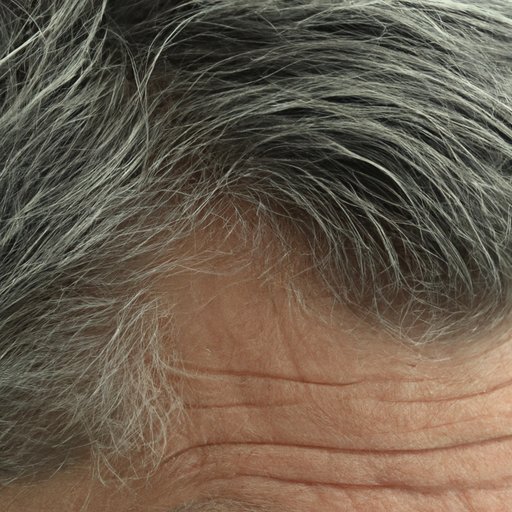
Introduction
It is a common belief that stress can cause grey hair, but how much of this is a myth, and how much is rooted in science? In this article, we will explore the science behind stress-induced grey hair and separate fact from fiction. We will also provide tips for coping with this issue and maintaining healthy, vibrant hair, even during times of stress.
The science behind stress-induced grey hair: Exploring the connection between stress and premature aging
When we are under stress, our bodies react by producing a hormone called cortisol. Cortisol is essential for our survival as it helps us to cope with stressful situations. However, when cortisol is released in large quantities over a prolonged period, it can lead to premature aging.
Telomeres are a crucial part of our DNA that protect our genetic material from damage. As we age, our telomeres shorten, leading to age-related diseases and premature aging. Studies have shown that stress can accelerate the shortening of telomeres, making us more vulnerable to premature aging.
In addition to telomeres, oxidative stress can also contribute to premature aging. During times of stress, our bodies produce more free radicals, which can damage our cells and contribute to aging. This damage can also affect our hair, leading to premature greying.
Are your stress levels turning your hair grey? Understanding the impact of cortisol on hair pigmentation
Cortisol can interfere with the production of melanin, the pigment that gives hair its color. When melanin production is disrupted, hair can turn grey prematurely. Research has shown that people who have high levels of cortisol in their hair are more likely to have premature grey hair.
However, it is important to note that cortisol is not the only factor that affects melanin production. Other factors, such as genetics and aging, can also contribute to premature greying.
From stress to strands: How chronic stress may contribute to premature greying
Chronic stress, in particular, can have a cumulative effect on the body and increase the risk of premature greying. When we are under chronic stress, our bodies produce more cortisol, leading to prolonged disruption of melanin production and premature greying.
In addition to cortisol, chronic inflammation may also contribute to premature aging. Inflammation can damage our hair follicles and interfere with melanin production, leading to premature grey hair.
Fact or fiction? Debunking myths about stress and grey hair
There are many myths about stress and grey hair, such as the idea that stress can turn hair white overnight. While stress can accelerate the greying process, it cannot cause hair to turn white overnight. The greying process is gradual and can take several years.
Another myth is that only older people get grey hair. While age is a significant factor in the greying process, genetics, lifestyle factors, and stress can also contribute to premature greying.
The stress of greying: Coping with premature hair aging caused by stress
Premature greying can be a stressful and emotional experience for individuals. Coping with the changes in our appearance can be challenging, but there are ways to manage the stress of greying hair.
Seeking support from friends and family can help individuals feel less isolated and more understood. Focusing on overall health and wellness, such as getting enough sleep, exercise, and eating a balanced diet, can also promote healthy hair and reduce stress.
Preventing and reversing grey hair caused by stress: Natural remedies and lifestyle changes to maintain vibrant hair
While it may not be possible to reverse the greying process completely, there are natural remedies and lifestyle changes that can help maintain healthy, vibrant hair.
Nutritional supplements such as biotin and vitamins B12 and D can support healthy hair growth. Essential oils such as lavender and rosemary can also help promote healthy hair and reduce stress.
Lifestyle changes such as reducing stress, exercising regularly, and avoiding smoking can also promote healthy hair and reduce the risk of premature greying.
Conclusion
In conclusion, stress can contribute to premature greying, but it is not the only factor that affects hair pigmentation. Chronic stress, in particular, can have a cumulative effect on the body and increase the risk of premature greying. The good news is there are ways to manage the stress of greying hair and maintain healthy, vibrant hair even during times of stress.
If you are struggling with premature greying caused by stress, remember that there is support available, and taking care of your overall health and wellbeing can help promote healthy hair. Remember, our hair is only a small part of who we are, and we should embrace and love ourselves at every age.





